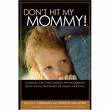Survey: Post-storm mental health worsens
By Janet McConnaughey, Associated Press Writer | August 21, 2007
NEW ORLEANS --More Gulf Coast residents are thinking seriously about suicide or showing symptoms of post-traumatic stress disorder as the recovery from Hurricane Katrina inches along, a new survey finds.
The survey is a follow-up to one done six months after the hurricane, which found that few people in Louisiana, Mississippi and Alabama -- about 3 percent -- had contemplated suicide in the storm's aftermath.
That figure has now doubled in the three-state area and is up to 8 percent in the New Orleans area, according to Ronald Kessler of Harvard Medical School, lead researcher for the Hurricane Katrina Community Advisory Group.
More people also showed signs of post-traumatic stress disorder, 21 percent of those interviewed this year compared to 16 percent in the earlier survey.
It's not surprising, said Karen Binder-Brynes, a New York psychologist who specializes in PTSD.
"It's a community that's in terrible distress. It's not like other things where, once everything's over, everything's getting rebuilt," she said.
Kessler team interviewed 1,000 people last year and was able to track down 800 of them for this year's survey. The latest survey is not yet ready for publication, but Kessler said the preliminary results for suicide and PTSD were striking.
Kessler said that in the months after the Aug. 29, 2005 hurricane, an underlying optimism protected many people from suicidal thoughts. Now, that optimism has worn thin -- something the earlier report warned could happen if rebuilding didn't keep pace with expectations.
The recovery from Katrina has been slow in some areas, especially in New Orleans. In addition to losses due directly to the storm, violent crime, poor schools and other problems have piled trauma atop trauma.
Kessler, whose study is supported by the National Institutes of Health and the World Health Organization, said most disasters have relatively rapid recoveries, so rates for such ailments as depression and PTSD usually improve after a year.
The results of the New Orleans survey are more like those of people who lost their jobs in Detroit during the 1980s and couldn't find new work, he said.
Topics List: Spring 2008
- VIOLENCE, TRAUMA AND SOCIAL WELFARE COLLOQUIUM
- Week 1: Introduction and Self-Care
- Week 2: Historical and Theoretical Perspectives
- Week 3: Biopsychosocial Impact of Trauma
- Week 4: Violence Against Women
- Week 5: Religion, Race, Ethnicity, and Violence
- Week 6: Etiologies of Violence; Perpetrators of Intimate Partner Violence
- Week 7: Child Sexual Abuse; Suicide and Self-Harm
- Week 8: War, Crimes Against Humanity, and Genocide
- Week 9: Poverty and Violence in Oakland & Bayview-Hunter's Point
- Week 10: Rape as a Weapon of War; Violence Against LGBT people
- Week 11: Interventions for Trauma (with Greg Merrill)
- Week 12: Child-Parent Psychotherapy
- Week 13: Truth & Reconciliation in the Aftermath of Violence (with David Androff)
- Week 14: Violence, Trauma and Social Work (student presentations)
Tuesday, April 22, 2008
Subscribe to:
Post Comments (Atom)
Who Are You? (check all that apply)
How did you find this blog?
Links to Browse & Buy Books
Trauma and Recovery

by Judith Lewis Herman
Don't Hit My Mommy

by Alicia Lieberman and Patricia Van Horn
Violence: A National Epidemic

by James Gilligan
Ayaan Hirsi Ali
- Submission Part 1 (a short film in which the words of the Koran are written on women's bodies as they speak their stories of violence and trauma)
- "Infidel" (her autobiography of growing up a refugee and becoming a member of the Dutch Parliament)
- "The Caged Virgin" (her essays about women and Islam)
- Ayaan's Personal Web Page
- Wikipedia (good summary of her life, philosophy, and work)
Submission
Ayaan Hirsi Ali

from the cover of "Infidel"






No comments:
Post a Comment